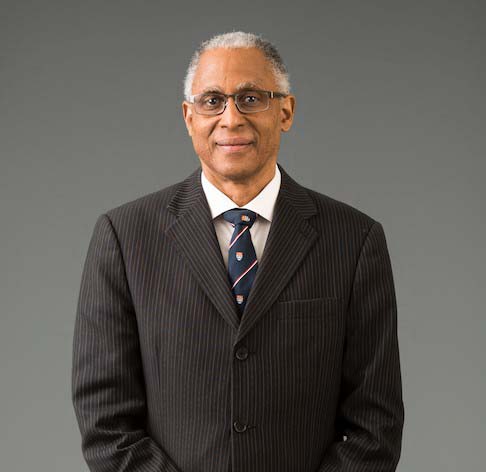The Caribbean Court of Justice (CCJ) on Thursday celebrated its 15th Anniversary and its President, Justice Adrian Saunders, said that as a court of last resort for contracting Caribbean Community (CARICOM) states, it court represents a new and different approach to regionalism.
Acknowledging that the current global environment is a somber one as the world fights against the COVID-19 pandemic, Justice Saunders said in a statement that the court feels it necessary to acknowledge its milestone and the work of all its employees from around the region who have contributed, presently contribute and continue to contribute to the rule of law in the Caribbean.
He said that since its inauguration in 2005, the court has worked on the premise that it is more than just a building, it is a service—a service that they take seriously, as the establishment of the CCJ was a defining moment in the history of the people of the region.
The judge said that for those countries that embrace the court’s appellate jurisdiction, it symbolises the end of colonial ties; and even for those states that only operate under its original jurisdiction, he said that the CCJ signalled a new and different approach to regionalism.
He noted that the coming into being of the court represented for the first time a judicial body that exclusively and authoritatively determined disputes or questions concerning the CARICOM Treaty.
Justice Saunders said that underpinning what our stakeholders see in the judgments of the court “is the hard work put in by the entire staff to ensure the CCJ’s efficiency and effectiveness.”
Also to be complimented for their assistance, he said, is the staff of the Registries of national judiciaries, which he noted support the court. “We take the time to applaud each and every one of these staff members for their unfailing dedication to continually go over and beyond the call of duty,” Justice Saunders said.
According to the judge, the President said that as the Court has adopted its vision “To be a model of judicial excellence,” it has risen to the challenge “ensuring that we produce quality judgments that are responsive to the needs of the region and are reflective of our history, values and traditions.”
He went on to say “we have also promoted a culture that supports legal development, one that enhances the quality of judges and court administration throughout the Region. This has resulted in capacity-building bodies, such as the Caribbean Association of Judicial Officers, the CCJ Academy for Law and The Judicial Reform and Institutional Strengthening Project, each of which helps to transform the legal profession and justice sectors across the wider Caribbean.”
Justice Saunders described the court as being one which has long responded to the need to meet its peoples virtually. Against this background, he said that the present climate has afforded the court the opportunity to reap the benefits of its technological advances.
He said that for quite some time now, all of the court’s filing and case processing and management systems have been electronic or automated. Many hearings, he said, are conducted via video conferencing, while the court’s new Practice Directions allow for emergency hearings so that its work can continue seamlessly in both sure and uncertain times.
Because of the COVID-19 pandemic currently plaguing the world, persons are urged by the World Health Organization (WHO) to stay at home, except for essential-service workers such as healthcare workers, joint military and disciplined services workers, media operatives and those providing food and grocery needs.
In the close of his address, Justice Saunders said that it also important that the court thanks all of the countries that have allowed it to serve them, both in the original and appellate jurisdictions.
“We also thank counsel both from the Region and outside the Region who have appeared before the Court and assisted us with their submission. Your faith in us is our driving force as we continue to work towards “providing accessible, fair and efficient justice for the people and states of the Caribbean Community,” the judge concluded by saying.
The CCJ was inaugurated in Port of Spain, Republic of Trinidad and Tobago on 16 April, 2005, and presently has a Bench of seven judges presided over by President Saunders.
With both an Original and an Appellate jurisdiction it is described as two courts in one.
In its Original Jurisdiction, it is an international court with exclusive jurisdiction to interpret and apply the rules set out in the Revised Treaty of Chaguaramas and to decide disputes arising under it.
In this jurisdiction, the CCJ is critical to the Caricom Single Market and Economy and all 12 Member States which belong to the CSME (including their citizens, businesses, and governments) can access the court’s Original Jurisdiction to protect their rights under the Revised Treaty.
Meanwhile, in its appellate Appellate Jurisdiction, the CCJ is the final court of appeal for criminal and civil matters for those countries in the Caribbean that alter their national Constitutions to enable the CCJ to perform that role.
Currently, four states access the Court in its Appellate Jurisdiction. These are Barbados, Belize, Dominica and Guyana.
However, by signing and ratifying the Agreement Establishing the Caribbean Court of Justice, information on the court’s website states that Member States of the Community have demonstrated a commitment to making the CCJ their final court of appeal.
“The Court is the realisation of a vision of our ancestors, an expression of independence and a signal of the region’s coming of age,” the court notes on its website.
Relinquishing ties, by abolishing appeals to the English Privy Council Guyana has made the CCJ its court of last resort.






